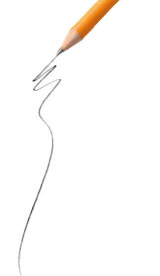

Is it Possible to Transform Assessment Practices Through Collaborative Work? An Inclusive Look at Daily Assessment
The objective of this study is to understand how collaborative work has transformed the evaluative practices of two public schools in the V region, towards the development of inclusive education and evaluation. Inclusive Education in Chile was initially approached from special education, implementing various regulations that modified school practices. Decree 170/09 regulates the School Integration Programs and indicates that classroom teachers and special educators must teach and evaluate the learning of all students together. The methodological design is framed in a qualitative-hermeneutical epistemological paradigm. Through a multiple case study, information is collected through documentary analysis, semi-structured interviews and classroom observations of two co-teachers per school. The main results indicate a variety of evaluative practices carried out in the classroom such as: adequacy of the instruments, evaluative practices and use of feedback, which has generated particular conditions in technical administrative work, classroom practice and the provision that have been established as teachers work together. Collaborative work is a recent practice prompt by a public policy in relation with others that are les inclusive, transforming educational practices in each case studied.
Education; Assessment; Inclusion; Feedback; Team work
https://doi.org/10.4067/s0718-73782021000100173